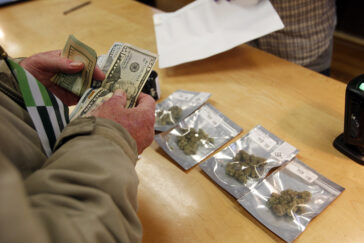Best of the States
Multi-format team dominates coverage of Austin serial bombing
Three previous bombings had put Austin on edge for weeks, triggering a manhunt involving 500-plus federal agents and prompting residents to flood 911 operators with calls about suspicious-looking packages. Reporters soon inundated Texas’ capital.
When emergency personnel reported another explosion late on a Sunday night, Austin correspondent Will Weissert quickly called sources and reported that the blast was a bomb. Newsman Paul J. Weber rushed to the scene and soon confirmed the same bomber had struck a fourth time.
In the days that followed, Weber and Houston video journalist John Mone drove continuous coverage across all formats as another bomb exploded inside a FedEx processing center, and Weber broke the news that authorities were predicting an imminent arrest. As authorities closed in, the suspected bomber blew himself up around 2 a.m. the following day. A coordinated effort by Weissert, Weber and Mone, joined by Austin newsman Jim Vertuno, San Antonio photographer Eric Gay, Fort Worth correspondent Emily Schmall and Iowa City's Ryan J. Foley continued to break news and dominate play.
Throughout the week, AP also produced nuanced, multi-platform reporting on how police track cell phones, shipping facilities screen packages and how the bombings shook Austin’s chill attitude.
For their tireless and aggressive efforts to break news by mining sources, searching records and knocking on countless doors, journalists Will Weissert, Jim Vertuno, Paul Weber, Eric Gay, John L. Mone, Emily Schmall and Ryan Foley share this week’s Best of the States.












